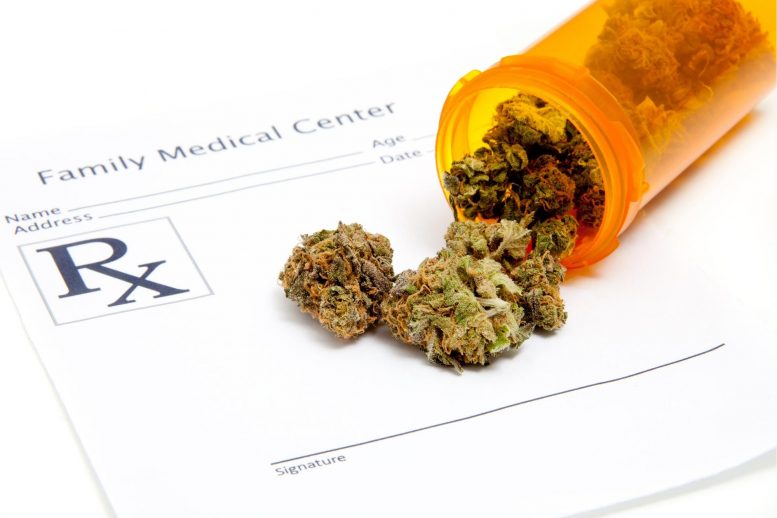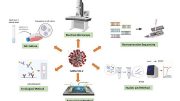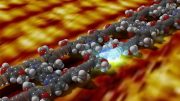
In medical cannabis products, the actual THC or CBD content are often very different than the label says.
THC and CBD Content on Labels of Medicinal Cannabis Products Can Be Very Inaccurate
A study of metabolites in the urine of patients taking medical cannabis products shows that the actual THC or CBD content is often different from what they expect.
Medical cannabis products are not always what they seem, according to a new study led by researchers at the Massachusetts General Hospital (MGH).
In fact, the contents of these products can vary considerably from distributors’ claims, according to the study, published in JAMA Network Open. This is particularly important when THC, the metabolite responsible for the “high” cannabis provides, is present in medical cannabis products labeled to be CBD only.
As more states legalize cannabis sales, demand has increased. However, there is little consistency in product regulation or labeling, unlike the strict regulation of medicines purchased through a pharmacy. As a result, labeling is often not accurately informing patients of the content of the cannabis-derived products they buy.
The psychoactive metabolite in cannabis is Δ9-tetrahydrocannabinol (THC). Cannabis products containing THC are federally banned, but states have been passing laws legalizing these products. This has in turn led to a patchwork of laws that have varied impact on guaranteeing that consumers get what they expect. Cannabidiol (CBD) does not come under FDA regulation.
In this study, researchers analyzed urine samples from nearly 100 patients enrolled in a clinical trial of the effect of medical cannabis for anxiety, depression, pain or insomnia. The purpose of the study was to see if these products were delivering the ingredients patients expected.
The results showed no CBD in about a third of the urine samples from patients who said they were using cannabis products that were CBD-dominant or had roughly equal parts CBD and THC. THC was detected in almost 80% of those samples, including among patients who thought they were only receiving CBD.
“People are buying products they think are THC-free but in fact contain a significant amount of THC,” says Jodi M. Gilman, PhD, the paper’s lead author and an investigator in the Center for Addiction Medicine in MGH’s Department of Psychiatry. “One patient reported that she took a product she thought only contained CBD, and then when driving home that day she felt intoxicated, disoriented and very scared.”
Exactly how the cannabis was consumed mattered, too. About 20% of patients who reported that they were vaping their medical cannabis had no detectable levels of THC or CBD metabolites in their urine samples. This suggests that some vaping devices may not heat cannabis products sufficiently for patients to even inhale the active ingredients.
“A lot of questions about the content of the products and their effects remain,” says Gilman. “Patients need more information about what’s in these products and what effects they can expect.”
Reference: “Variation in Cannabinoid Metabolites Present in the Urine of Adults Using Medical Cannabis Products in Massachusetts” by Jodi M. Gilman, PhD; William A. Schmitt, AB; Grace Wheeler, BA; Randi M. Schuster, PhD; Jost Klawitter, PhD; Cristina Sempio, PhD and A. Eden Evins, MD, MPH, 12 April 2021, JAMA Network Open.
DOI:
Funding: NIH/National Institute on Drug Abuse









Its not surprising we know nothing about these chemicals in Sativa plants. The full strength of the law has made even looking in its direction career ending. Just for the sake of scientific knowledge this type of restriction should not be tolerated. Knowledge is knowledge, no matter where you find it.